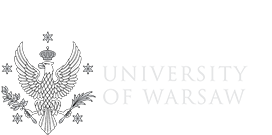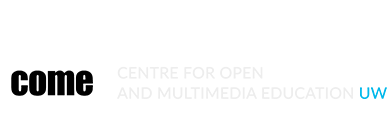Methodology
The e-classes we provide on our e-learning platform are governed by the same set of quality standards as those which are adopted in the stationary classes. Therefore, the teaching aims, content and teaching methods are chosen along the same assumptions as those implemented in the traditional classes – the difference lies in the mode of conducting classes (online – distance learning) and the tools used (e-learning platform and other ICT tools).

While designing e-courses, we take into consideration the nature of working in the virtual environment. Every component of an e-course needs to have a purpose so as not to distract the participants’ attention. At the same time, we design the participants’ activity path to make the most of the time they spend on an e-course. We apply engaging and interactive tasks; they not only bring persity to online classes or serve as a supplement, but are primarily an integral part of the e-course.
It is of vital importance to us to raise students’ awareness of their role as of active e-course participants. It is our concern to make them know what objectives they are supposed to achieve. We make sure that they are given a chance to reflect on their self-development on an e-course. We also believe that in e-learning the presence and activity of an e-teacher in the virtual classroom environment is highly required and indeed expected as it plays a valuable role of motivating the students to participate in the course with full engagement. That’s why we also design ways of communication between the e-tutor and the e-course participants.
The e-classes on COME UW e-learning platform are conducted either fully online or run the blended way. It is quite often that we offer online support for traditional classes (embedding materials for students, collecting their achievement tasks, online group communication).
Throughout the semestre, we check students’ progress on daily basis via the Internet but the final certification tests take place in class thanks to which the final grade is credible and as valid as the one obtained for the traditional course completion.
We invite you to read the following papers to find out more about the methodology of our e-courses.




